You know, it’s at times like this that I think it’s most important for all of us to remember not to jump to conclusions. I know you want to. I know I want to. And it’d certainly be easy! Over time, as these episodes have stretched on, I’ve given snide little asides and mini-sermons on what I think of the underlying philosophy of this show. How it plays into perverse, naive ideas of meritocracy popular among gamers or outsiders in general. How it doesn’t really seem to understand human beings on more than a superficial, “man-creatures do this” level. How it seems to like violence just maybe a little bit too much. And it’d be easy to extrapolate from this that, say, all gamers are psychopaths who dream only of murder. Or that videogames are popular because they provide the killing fields these bloodlust-crazed time bombs so desperately desire. Or that Sword Art Online represents an idealized view of the world written from the perspective of a person who knows he deserves to rule, scorns those who currently thwart him in the cruel outer world, and longs for the day when he will bring swift and long-awaited justice in the form of righteous, delicious, endless acts of brutal, merciless violence.
But let’s not jump to conclusions.
I could be frank, though!
Should I be frank?
Alright, let’s level for just a brief moment here.
(And before we begin, let me make it clear that I am not talking about “all gamers,” that my statements come from a position of extreme investment in the medium, that everyone I know and am friends with plays videogames, and that I will probably be playing some Soul Calibur tonight or hopefully New Super Mario Bros if I can convince my housemate to let me use his system)
If you read these posts, if you follow my twitter, if you’ve visited my ask.fm, you probably know I have a, to put it charitably, “dim view” of the gaming community at large. I don’t think this is because videogames turn people into monsters, although I’ll get to that in a moment. I think it’s because videogames are what they are.
They’re alternate worlds. Escapism in the form of controlled realities. They are inherently appealing to people who feel powerless, and people who feel powerless often feel the desire to exert power. They’re a specialist interest, leading to insular communities. They were traditionally the domain of boys shunned by social circumstances, leading to an ingrained undercurrent of resentment and an us-versus-them mentality. They make strict, logical sense, a comfort to people who wish the world or other people would do the same.
All of these things lead to gaming surrounding itself with a community predisposed towards some pretty negative stuff. And this is compounded by the fact that videogames are Murder Training Devices.
Alright, hopefully that got your attention, even if it’s a lie. Because it is a lie – if videogames are murder training devices, they are not particularly good ones. But it is true that our media influences us. Forms our cultural landscape. Tells us what is normal and unacceptable. Makes us feel more or feel less. And perhaps most importantly, our media helps us grow.
Which is really the biggest single problem I have with someone who dedicates their life to gaming, and one of the central problems exhibited by Sword Art Online. It’s most strongly illustrated by the villains here, but it’s evident in almost all the characters – they don’t feel like people. They seem like ideas of people, like stories received from a book or, more likely, a videogame. In order to create stories, you must engage with the world, and engagement with the world requires absorbing a variety of rich experiences and rich media. Games are, to be frank, not there yet. They are still largely toys, and cannot substitute for an engagement with the world through literature, film, and human experience. The problem with games isn’t that they are good for you or bad for you – it’s that they are nothing for you. Two hundred hours spent in Call of Duty does not teach you one single thing about why someone might be led to commit an “immoral” action. Fifty hours of mastering a specific speed run won’t give you a single insight into how people react to traumatic circumstance.
Sword Art Online is hamstrung by the fact that its author did too much research, and too little engaging with the world. He does not understand people, and so he cannot write them or empathize with them. His story is an extension of himself, and his shadow does not extend very far.
That may be the harshest thing I’ve ever said about a writer! But it’s honestly the impression I get from this work. The binary worldview, the simplistic characters, the gleeful violence – I think it all comes back to this guy just not spending enough time really trying to understand other people. And I kinda feel sorry for him, but that doesn’t mean I’m gonna go easy on his creepy little adventure.
It’s time to finish this, old friend. Let’s Sword Art Online.
Episode 25
0:01 – No matter what you say about this show, you can’t deny it’s pretty. They did their best, those animators. They really -sniff- really tried
0:11 – I like the choice to end back here in the real world. His final hurdle is literally turning his online human connection into a real-world one
0:29 – More pretty shots. Pretty music, too
0:48 – AW SHIT
1:05 – FINAL BOSS: DUDE WITH A KNIFE. Careful Kirito! If you slice a guy in half and impale him your sword in the real world, juries are rarely sympathetic to the “I AM THE GILDED HERO” defense
1:09 – SECRET TECHNIQUE: SMOKE A TON OF CRACK
1:26 – One of the few realistic things he’s said. I’m sure Facebook would love to hire the man who unlocked the secret to reprogramming brain chemistry
1:45 – Nice dynamic shot
2:00 – Losing sucks, but at least he gets to do the “meddling kids” line
2:31 – Aw shit you said the magic words Kirito rage mode unlocked
And to think, Kirito had the power to beat up a crazy man in a parking lot inside him all along
2:54 – I’m guessing I’m… not… gonna like what happens next?
2:58 – Remember kids, videogames do not cause violence in the real world
3:01 – Really this comes down to negligent parenting
3:07 – His family probably just has a history of mental illness
3:32 – If his attacker had been more careful about leaving knives laying around, none of this would have happened
3:43 – See!? Good as new
3:48 – KIRITO THE JUST
3:53 – AND NOW, TO SEE MY WOMAN. Doesn’t this even look like a horror movie shot?
4:06 – For a second I thought that scratch on his cheek was the extension of his smile and I was like Finally, this show understands itself
4:11 – Yesss, listen to the voices
5:03 – Videogames do not cause you to lose touch with reality
This show extending that “the virtual world can be a valid reality” point into “the real world is just like the virtual one” is leading to some pretty weird moments. I know they’re just trying to indicate the strength/confidence Kirito apparently found in videogames is translating back here, but considering the last thing he was doing in the virtual world was naming himself the “Gilded Hero” and torturing a man to death, that is not a comforting thought
5:52 – There it is you kids. You’ve earned it
6:02 – Holy shit this show goes all the way
6:05 – She must have the worst breath. Two-year-old saliva and stale air all up in them nostrils. Kirito is a champion
6:14 – Moments like these, where the show’s just indulging in its own “legacy,” make me kinda sad I can’t enjoy this like I might have ten years ago. It’s kinda nice to be able to unquestioningly love an indulgent piece of media
6:55 – All that color
7:12 – No matter how hard you try, you always end up in a high school eventually. Curse you, anime!
7:14 – Well I got molested by tentacles
7:38 – Again, that’s actually a pretty great premise for a different show
7:51 – Tragically, many waifus do not survive early childhood, due to injury and sickness’s inability to make them any less kawaii. Please take your waifu for regular checkups, as potentially serious illnesses will only express themselves through a slight blush or possibly an adorable cough
8:04 – Aw crap that blush could mean late-stage appendicitis or possibly rabies
8:07 – Oh no they see us holding hands uguu~
Looking for Alaska, a book I recently read that’s directly aimed at teenagers, featured heavy petting and an extremely awkward blowjob. The Twilight series features a goddamn vampire baby chewing its way out of its mother’s womb. I think anime can handle teens holding hands.
8:22 – Direct callback. Half a point
9:11 – Now that’s a great callback
9:26 – YEAH YOU WOULD THINK
9:33 – REKT
10:09 – Welp, guess he’s never going away
11:20 – I might actually prefer the full harem version of this show, if only because Lisbeth and Sugu are much more interesting to watch than Kirito and Asuna
12:35 – It is kinda weird that the world has just overtly agreed to this
12:57 – Heroism has its perks
13:11 – Agil’s the best character without even doing a damn thing
13:31 – Yep, that’s sure what my circle of MMO-playing friends looked like
14:31 – Oh Agil, what can’t you do
14:44 – Infinite worlds. Infinite sequels
15:02 – That seems like the responsible thing to do
15:43 – I figure this will eventually actually happen as a result of the continued growth and convergence of social media, not from games organically connecting to each other, but it makes sense that this author would see it from this perspective
17:32 – Keep it in your pants Sugu
17:39 – Sugu plz
17:46 – Videogames take the romance out of everything
18:18 – This is just like that scene from Utena except they’re siblings and I don’t care about them
18:45 – It is certainly nicely produced, though
19:21 – Freedomisthetheme.jpg
20:22 – Impressive
20:39 – Really? You… really want to do that, now? I’d think you’d be kind of, you know, haunted by the deaths of all the people you knew there, and constantly reminded of all the hours you were trapped there, and whatnot
I mean, I guess this can tie into “appreciate your time in a virtual world,” but wasn’t that about people making that time meaningful?
21:01 – The purest love
21:46 – Aw don’t even try to pull that shit, Kirito. Are we seriously ending with a “the secret words” thing? That’s not even relevant to this show! That only means anything when it offers a lingering question regarding… wait, don’t you run away from me, SAO! That’s just one more thing you know “stories do,” and so you include it even though you GODDAMNIT IT’S OVER
And Done
SCREW YOU SAO. GAH. DAMNIT. FUCK.
Well, that episode was fine. One last battle, a tearful reunion, and we got to see all our bros again. Not much happened, but this show has always been indulgent, and so an episode indulging in your assumed love for the characters at the end is pretty appropriate.
I’d offer some final thoughts, but the next season starts in two friggin’ days, and I think you all know more or less how I feel. Or at least I hope you do. Jesus christ, I wrote maybe a hundred pages about this show, I really hope you do. It’s been a fun ride (honestly), and though SAO was terrible, it fulfilled its promise of Rarely Being Boring. Plus, hey, it was pretty, the soundtrack was good, nice animation – if you’re gonna take a ride into the dark depths of all that is terrible, you could pick a much worse vehicle than Sword Art Online. Sure, it was inept and often downright despicable according to every narrative metric, but we all have our quirks. And it’s certainly been a pleasure hearing you assholes giggle about whatever horrible creature awaited me around each new corner.
You want a list, though, don’t you. The paragraph to drop in the face of any bright-eyed new fan, fresh off their first favorite anime and eager to tell the world how great it was. You jackals want me to hurt that new fan. To give you a weapon, to put the gun in your hand. To burn them so they may never grow, never seek past their first brush of fandom, never get a chance to see anime as anything more than a thing that assholes like us watch.
Eh. Fuck it.
Sword Art Online is a pretty terrible show. Aesthetically, it’s actually very solid – strong direction, nice animation highlights, and a lovely soundtrack. Unfortunately, all that production is working in service of a narrative that is broken, ineptly written, and often downright toxic. Sword Art Online is often dismissed as a “power fantasy,” which its fans have rightly challenged as something that’s both common and not inherently meaningful as a criticism. But the way Sword Art Online expresses its power fantasy nature makes it fail pretty definitively as a dramatic narrative.
The elements of the story all tend to work in service of making the protagonist Kirito look good, generally at the expense of both dramatic weight and character writing. All the female characters end up either simply falling in love with him or, at worst, being used as damsels to create tension. This is necessary because Kirito himself creates no tension, because Kirito Always Wins. Though he’s initially framed in such a way that you’d think his “antisocial nature” would be his central flaw, the show simply doesn’t support this – Kirito is charming throughout, constantly winning friends and admirers, and he handles each new challenge thrown his way with ease. Characters actually become worse in Kirito’s proximity, because the story continuously bends them to either love him unconditionally (if they are a character defined as “good”) or hate him/make him look powerful (if they are defined as “evil” or “neutral”).
Couple this with the show’s structural problems (disjointed, development-killing vignettes in the first half, very poor pacing in the second), generally low-tier writing (which occasionally erupts into tension-destroying melodrama), and inability to actually convey a convincing digital world, and there’s just not really much to grasp onto. And compound this with the show’s truly toxic elements (primarily its love of using sexual assault to generate cheap tension, its general disrespect for its female characters, and its ultimate, frankly disturbing embracing of violence as an element of justice), and there’s no way I can really recommend the show. Shows I consider “competent” at what they do receive a 6/10. Shows I consider “bad” receive a 3. SAO does not truly reach the depths of depravity necessary to drop it to my lowest available score, but it certainly gestures in that direction – and so ultimately, I award Sword Art Online a 2/10.
SEE YOU NEXT TIME.

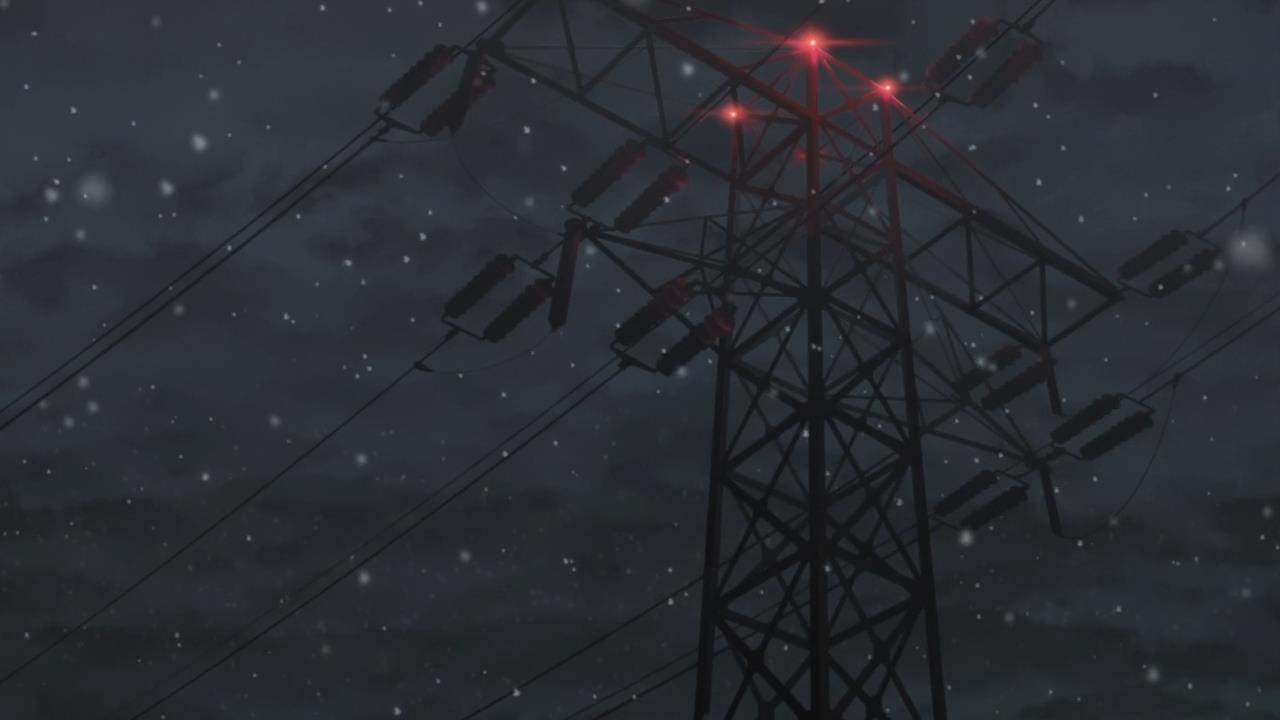
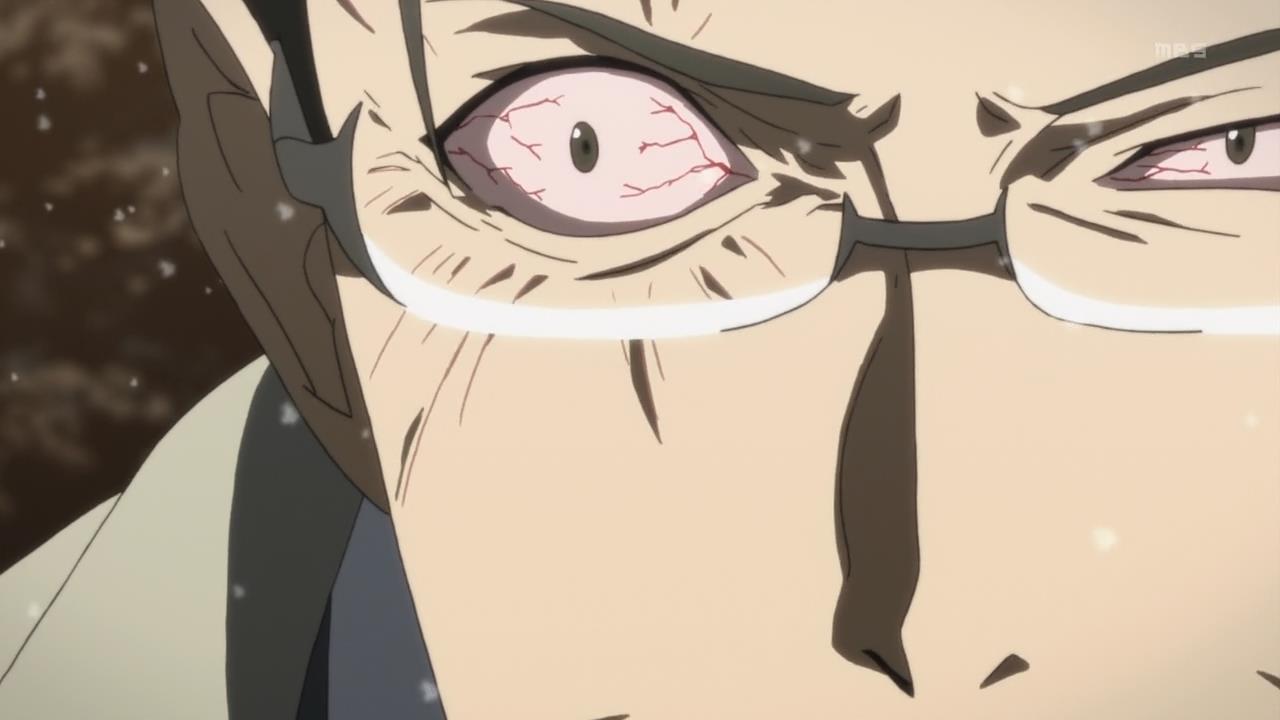
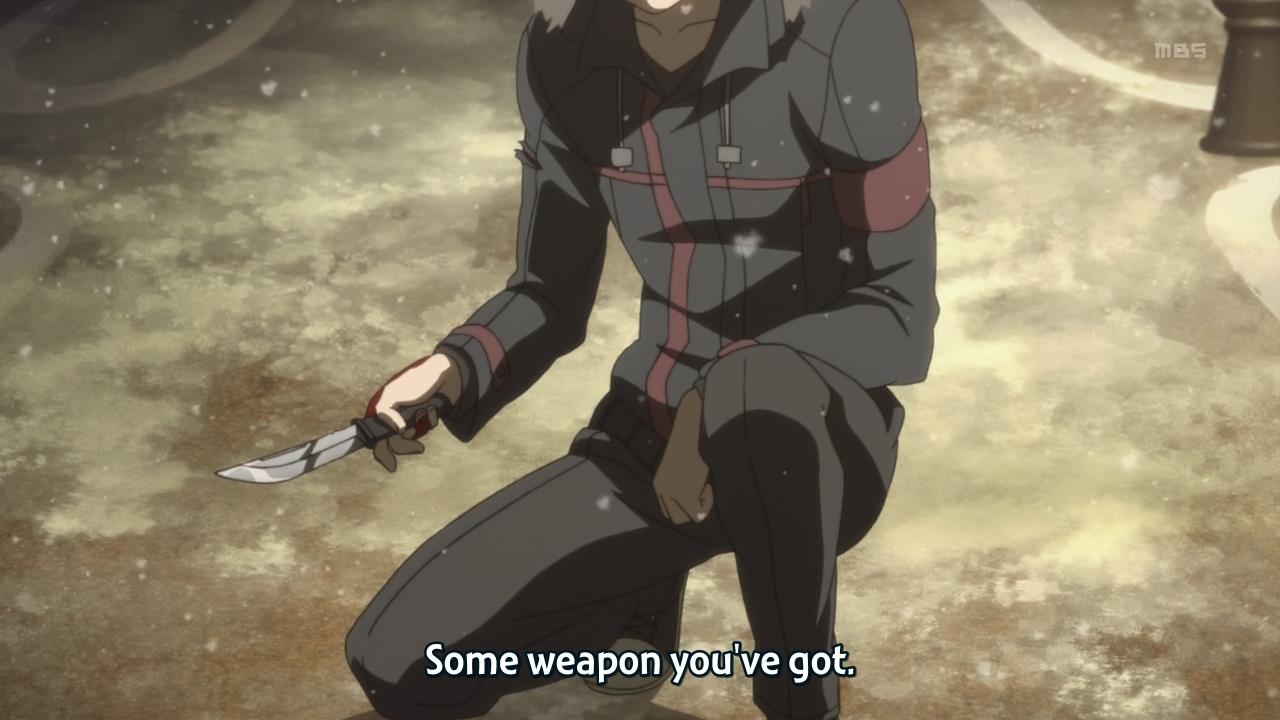
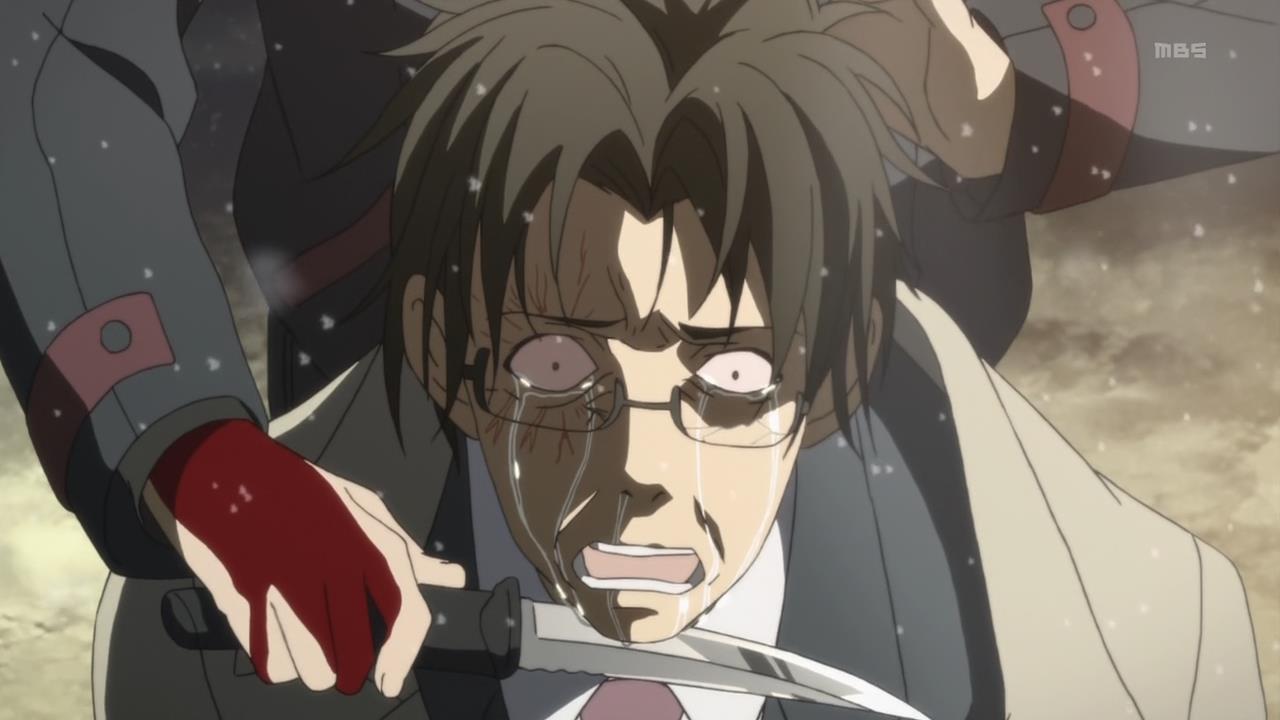
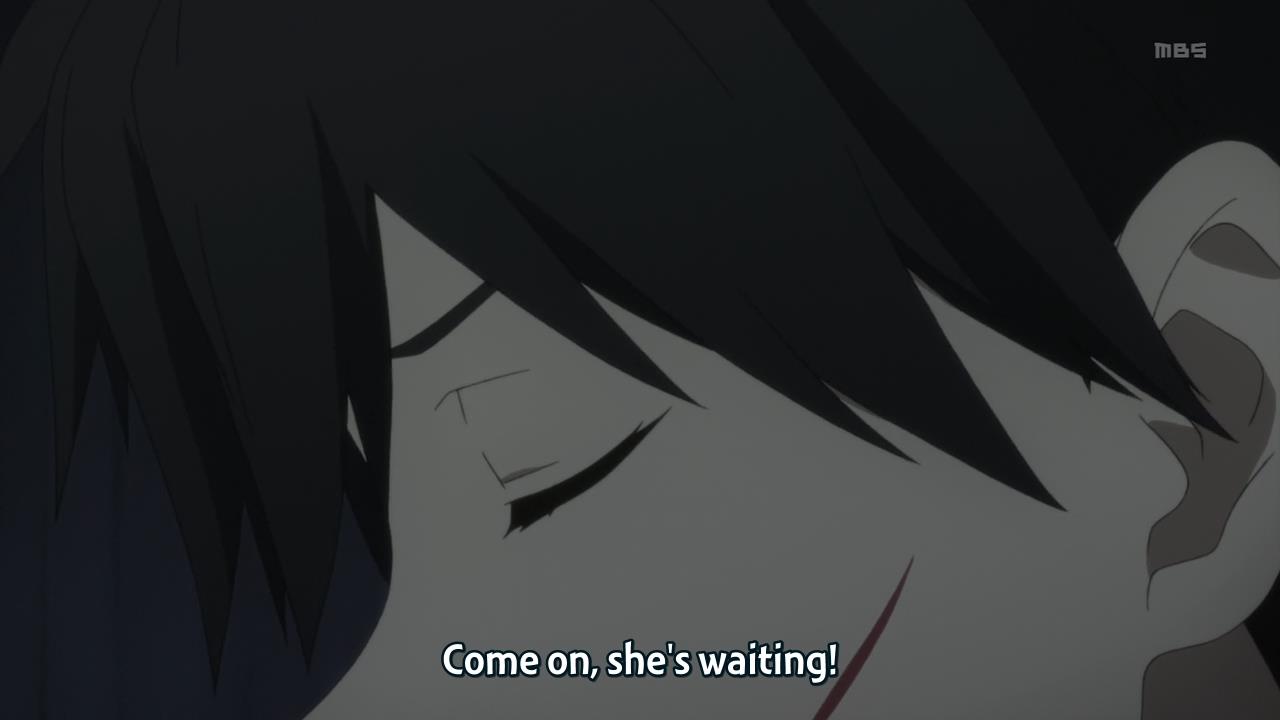
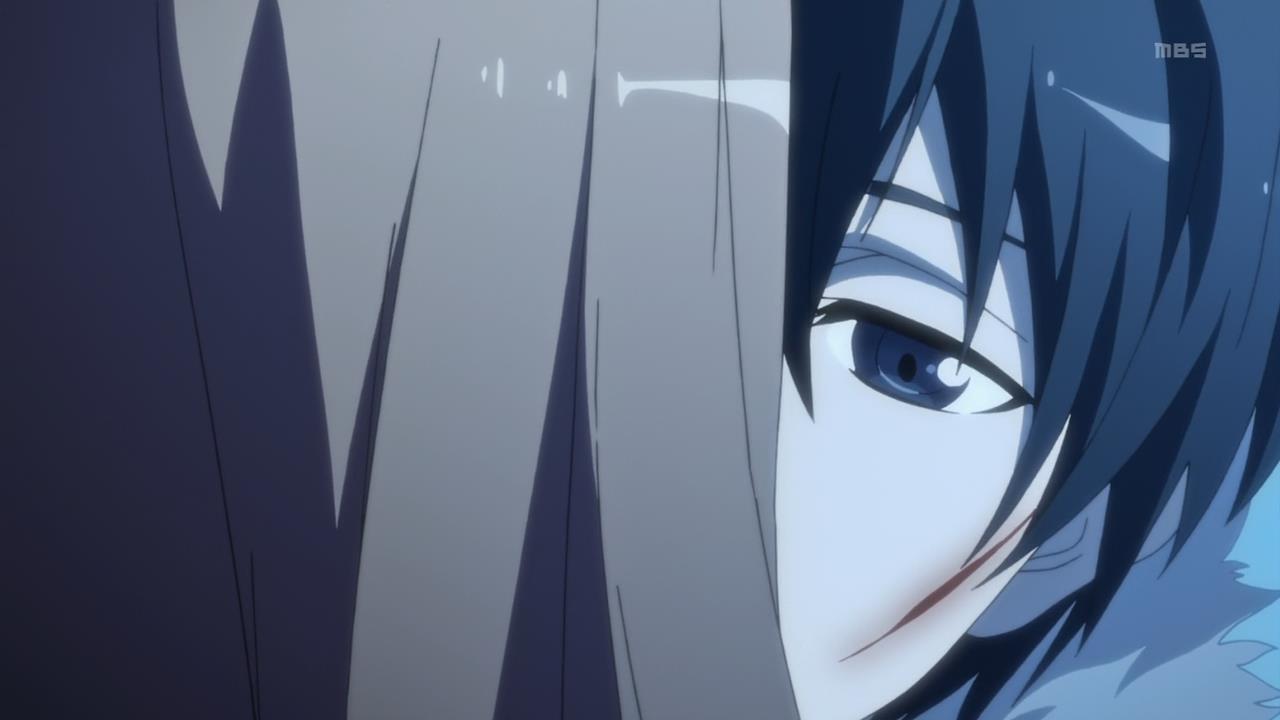
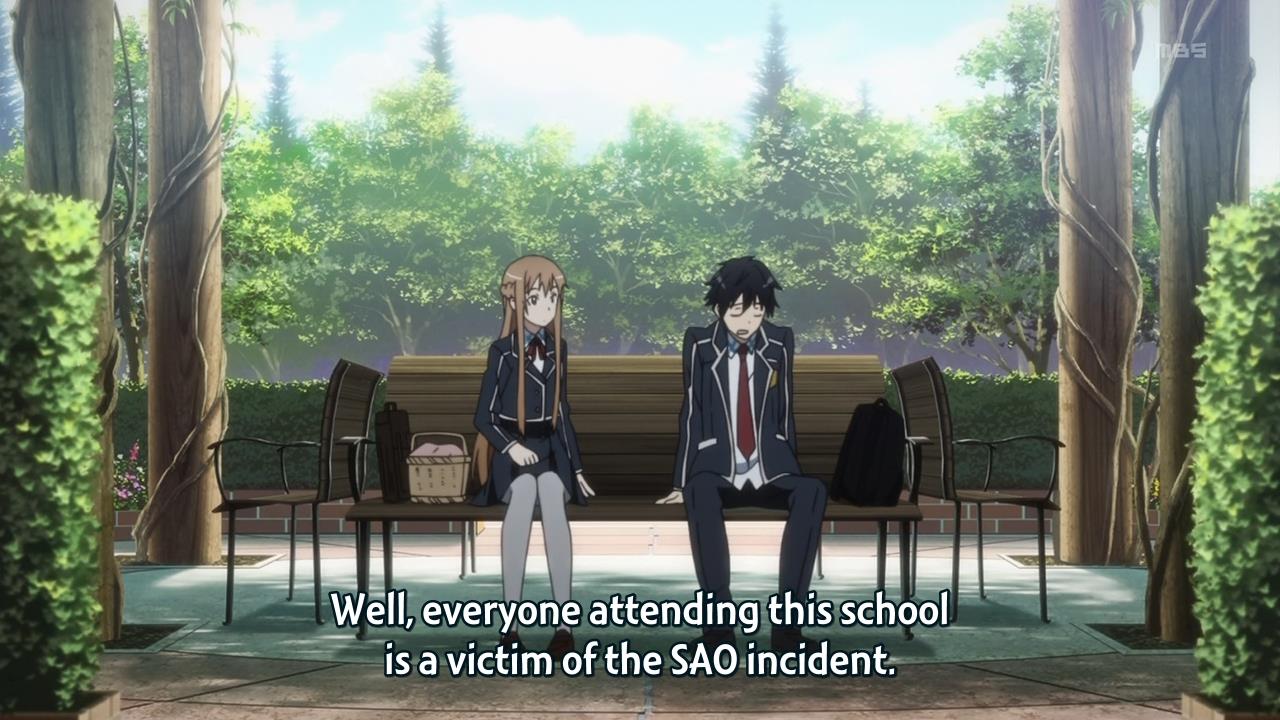
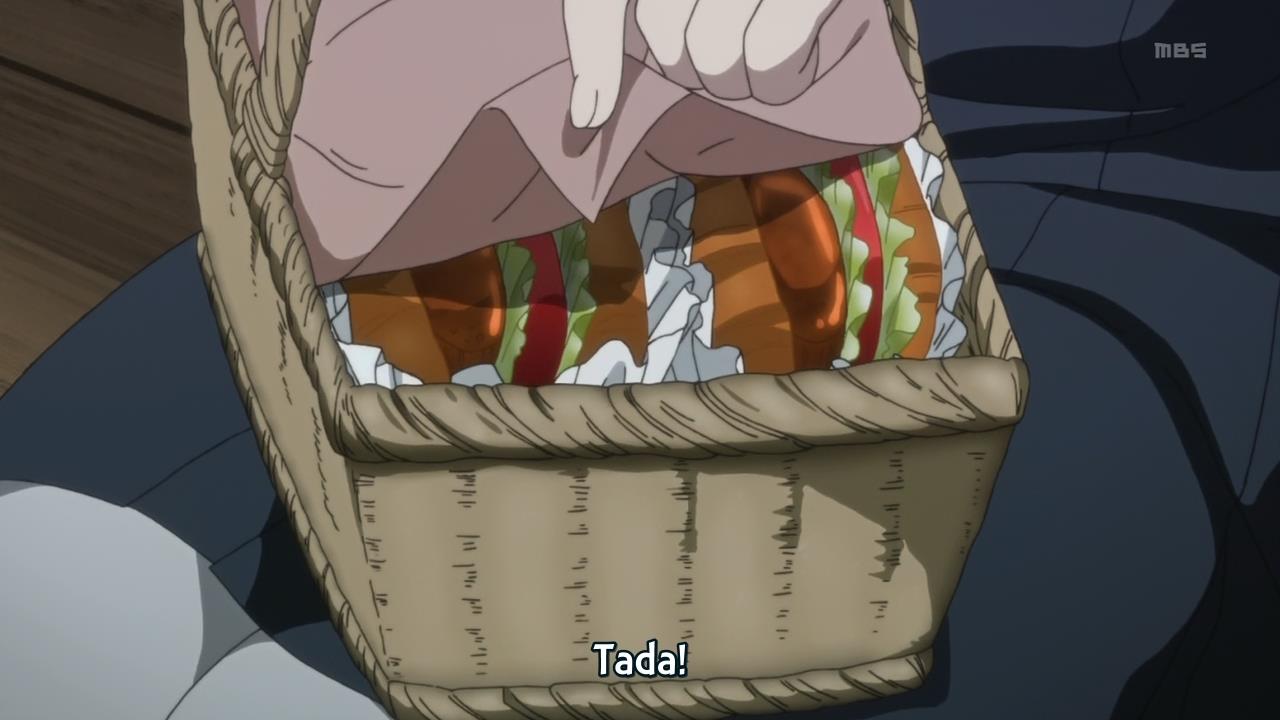
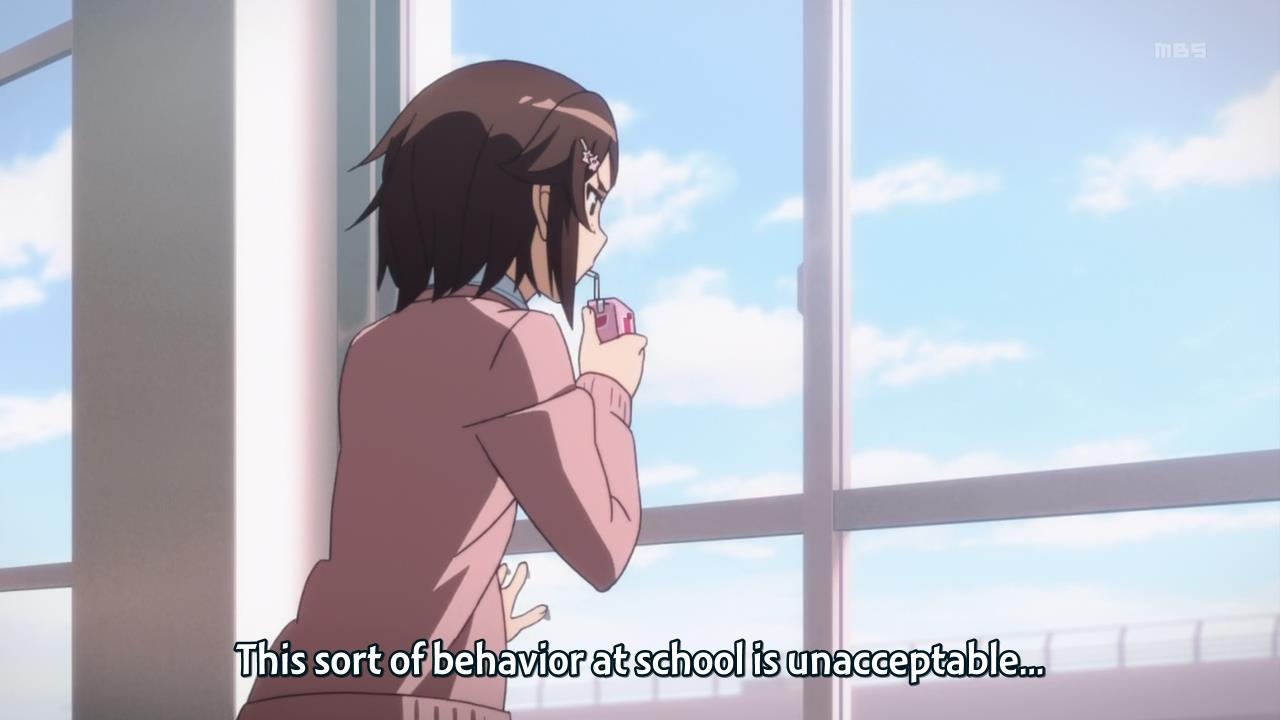
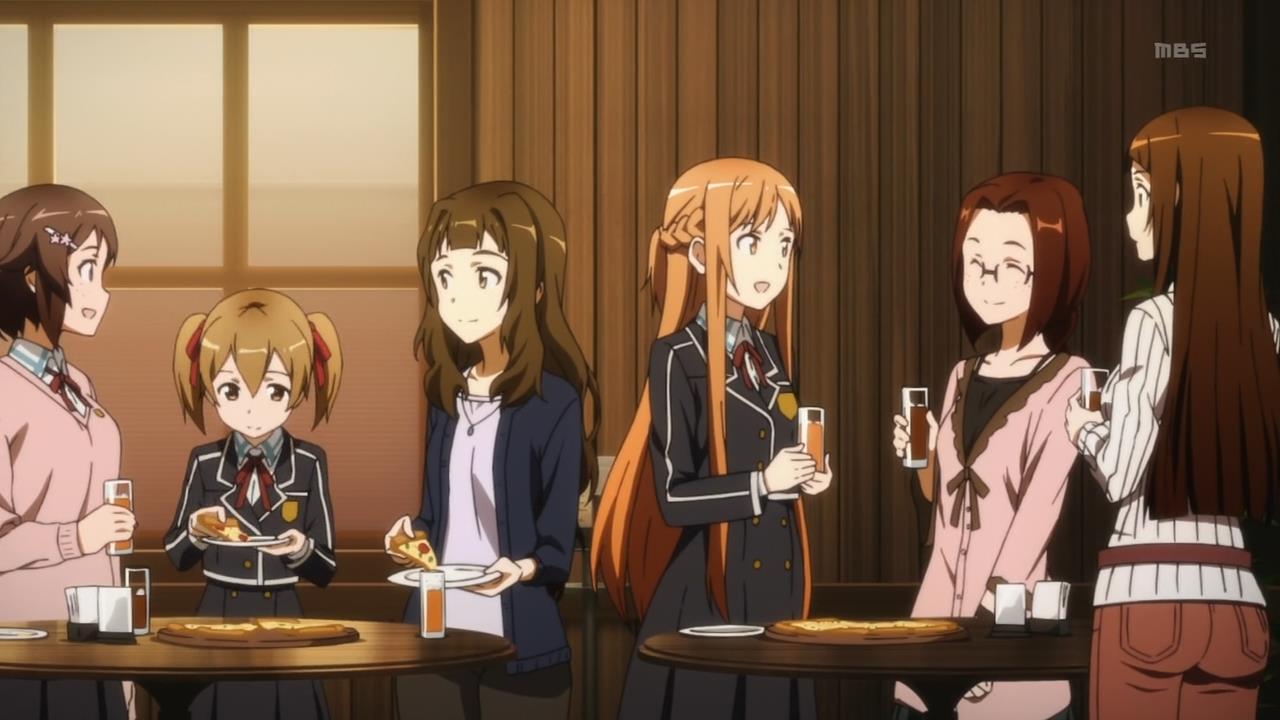
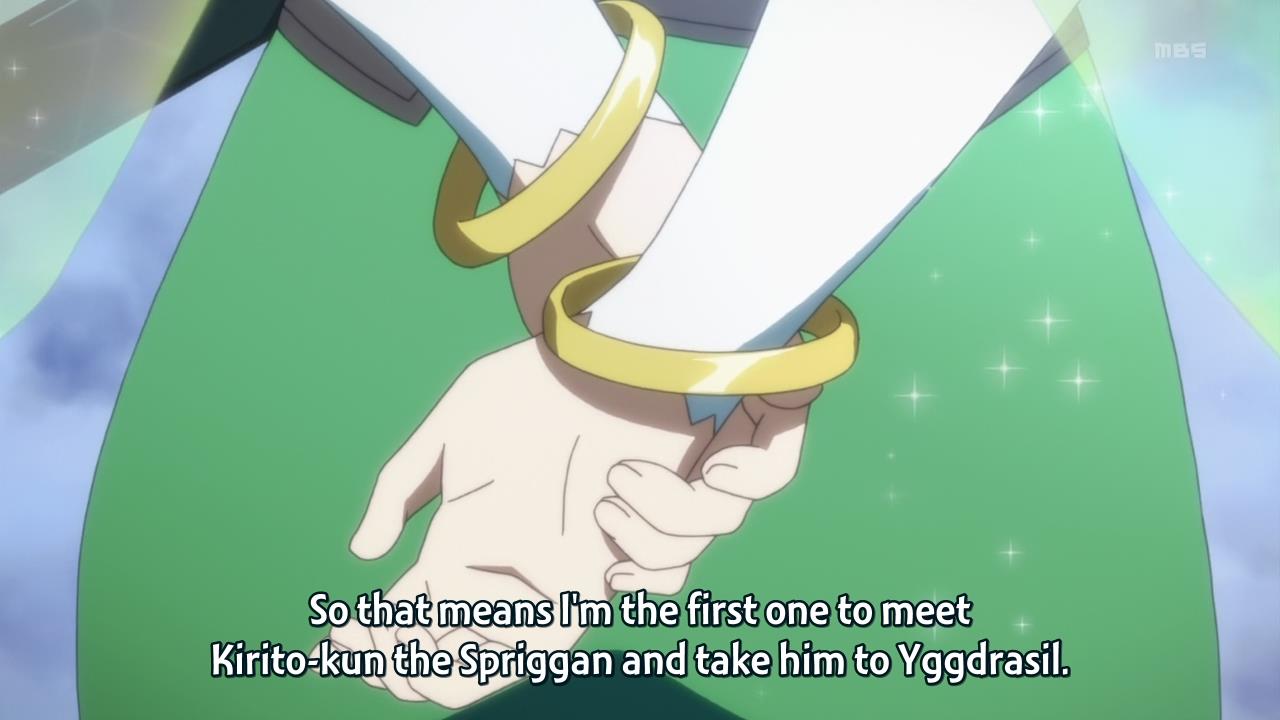
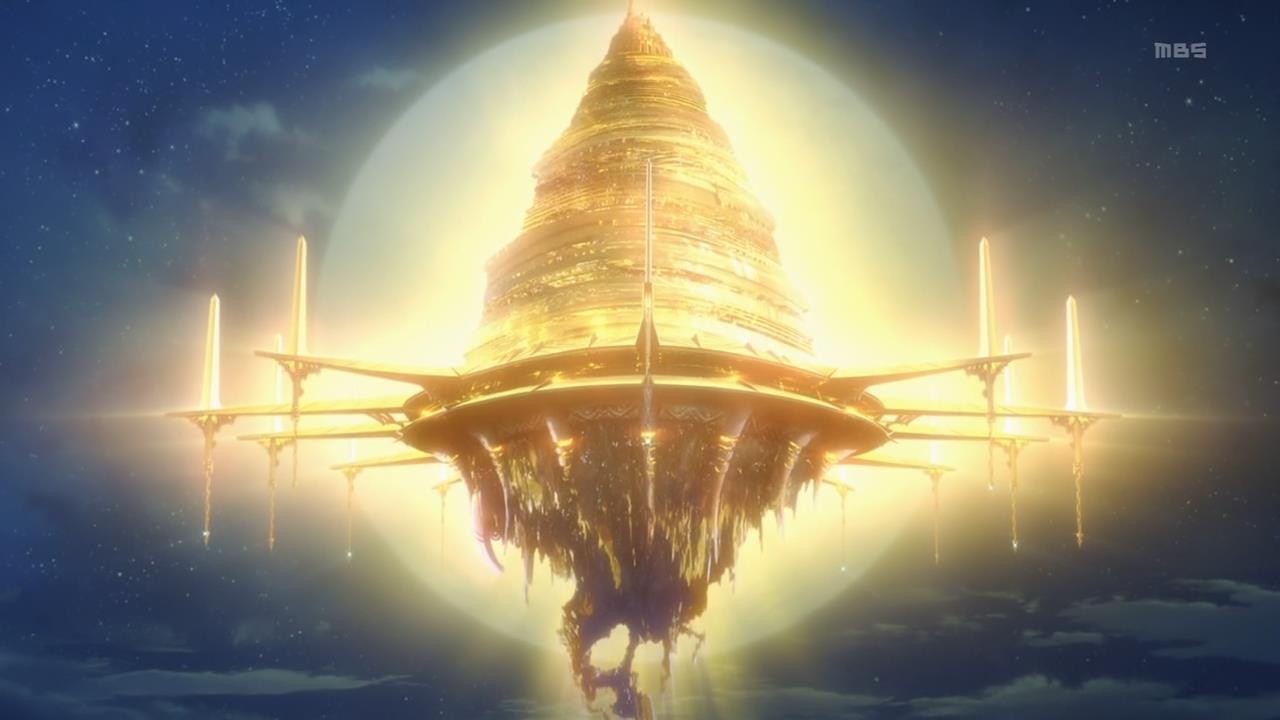
sniff you did well. I’m so proud of you. But your road has only just started.
I… did it?
http://i.imgur.com/Z6VCxOb.gif
I recommend you watch this in your spare time. A nice, concise amounting of what you wrote in opening paragraphs. Propaganda games:
Extra Credits’ episode on Game Compulsion might be worth a watch as well. https://www.youtube.com/watch?v=w9n2JehjQ7I
Really, all of Extra Credits is great. “Open Letter to EA Marketing”, “The Myth of The Gun”, “No redeeming Value”, what they do that is right up Bobduh’s alley.
Oh, and to avoid being entirely negative towards games, here’s one Extra Credits did that is actively against some of Bobduh’s points.
Every time you typed that I thought of Sugou. You should type Suguha 😛
That’s exactly what Gun Gale Online is all about.
That’s how it’s in the LN as well. I went and checked.
Funny how people complain about “The power of friendship!” in shounens, where they end up always winning, but they usually lose before coming back. In the end they do always win, but there’s at least the semblance of coming from behind, of learning from a loss. And sometimes you come back not in the same fight, but in another one.
Is it possible to have a shounen action show where the MC doesn’t win, not even later on, against the same opponent? Easily, of course, but in most cases where it happens, I have a gripe that’s different from the “Weaksauce MC!” one we often hear – the way the challenge is passed is a deus ex machina, or removes agency and tension from the story because there’s still someone who always wins, even if it’s not the MC.
Something to mull over.
I’m generally of the opinion that the main character of story should not be the most powerful character. (yes there are times when this works, but exceptions, rules, etc)
It’s a topic that comes up when you roleplay in canonical worlds, such as roleplaying in Star Wars when Luke’s around, or in LotR while Frodo and the group are marching to Mt. Doom, how you’re basically telling another story in the world.
“Shounen power of nakama” genre is about how the MCs become the most powerful character. LNs seem to use that as the starting point.
I can’t help but see the “always wins” discussion in terms of Ping Pong, which solves it both by making all the competitors protagonists and by directly attacking “winning” as something to be sought. I don’t think answers have to be that direct, though – as long as you hang the dramatic tension on a character’s emotional journey and not solely their competitive one, you can probably find a way to have them lose but still satisfy the narrative.
As far as common assumptions about “winning” and “losing” in shounen anime go, HunterXHunter does a pretty damn fine job at subverting them, especially in its latest arc.
In essence, then, it’s about shifting the thematic goalposts so that the thing the protagonist truly needs to “win” at isn’t the plot-competition, but the game of character development, right?
Most good shows, not just shounens, directly parallel plot-obstacles to CharDev obstacles, because otherwise the plot just becomes Stuff Happens, and exceptions do still make the connection, but it’s no longer strictly win = positive character development. resists urge to make graphs where “wins,” “character development,” and “other metric” are axes and have example lines
“13:11 – Agil’s the best character without even doing a damn thing” Apparently there’s some backstory about how Agil owned that bar before the SAO incident and his wife kept it running in the intervening two years hoping he’d be able to come back someday. BEST LOVE STORY EVER TOLD.
Uhh, what exactly would you expect her to do instead?
Considering that running a bar, any small business, is a fuckton of work and since she suddenly had to take care of all of it, not just whatever she was doing before, I think she gets respect for doing that.
Goddamnit Agil what are you doing having the best love story in the show and NOT EVEN TELLING US ABOUT IT. Agil too humble.
“See you next time” meaning you’re going to give SAO II a shot? Sadly, it’s not nearly as terrible as the first couple of arcs SAO covers. In fact, if taken as a stand alone the arc the second season is covering can be considered a fairly solid-ish action series.
Yep! I didn’t really start this show determined to pan it – if season two is actually good, I’ll be happy to say it’s actually good. I like good things!
So I had a very different experience with this show from you. You talked about early on how people were always trying to affect your view of the show with all their comments. For me this was the first show I watched from start to finish as it was airing. Any previous shows I watched on a weekly bases I had marathoned through somewhere between 10 and several hundred episodes to get to that point. Thus I had always developed a solid opinion before it became weekly. So in retrospect I realize that I was giving the show a lot more leeway than it deserved. By the next week I had forgotten some of my minor gripes and only really remembered the “awesome” moments. Of course the near-rape scenes in the second half were still terrible, and the second half’s pacing overall was awful, but I legitimately enjoyed the first half and actually liked the characters. I’m pretty sure if I had watched it now for the first time my opinion would be a lot closer to yours. It just goes to show that a lot of how a show is enjoyed depends on the viewer perception rather than the actual quality of the work.
Yeah, it’s pretty much impossible to avoid having your context affect your experience. I did my best to just be as honest as possible in my reactions, and actually found it very interesting how often my reactions or what I responded to was very different from the readers. I’d get comments like “can’t wait to hear your thoughts on episode ____”, and then it’d turn out I completely missed or was unaffected by whatever piece of the puzzle they were completely focused on. Media is a funny thing.
You want a list, though, don’t you. The paragraph to drop in the face of any bright-eyed new fan, fresh off their first favorite anime and eager to tell the world how great it was. You jackals want me to hurt that new fan. To give you a weapon, to put the gun in your hand. To burn them so they may never grow, never seek past their first brush of fandom, never get a chance to see anime as anything more than a thing that assholes like us watch.
Bingo! Totally true. How could you read into our dark and sinister minds? 3:)
Joking aside, it is the rising escapism in anime’s fandom that made me worry about. Your writeup on SAO have gave me hope, for there are some anime watchers who can see the problem in anime.
I need to stop feeding you evil people! I wouldn’t worry about “rising escapism,” though – escapism’s always been the name of the game, great works have always been the exception, and art has always found a way. Just gotta keep believing.
Maybe it wasn’t “rising escapism” but “become detached too much from reality so you can no longer understand the real world?”.
Sword Art Online was written in 2002 but Reki Kawahara only get his first novel published in 2009 and Sword Art Online published in 2012. That mean the mass back then didn’t accept his ideas, but now they readily accept them. I afraid the anime industry is taking a turn for the worse.
The wind is rising! We must try to live.
Anyway, would you do a writeup on Sailor Moon Crystal? I think it has potential (but maybe not).
What you say about gaming escapism is, for one, thankfully becoming less and less true with time, as games become more narrative, atmosphere or experience-based, and less about smashing the B button, and second, is easily applicable to most, if not all, other media. I, being a fantasy fan, would know; all those posts I make about in-SAO economics and whatnot are easily construable as an attempt to immerse, and immersion is nothing if not an escape.
I also wonder if this talk about genuine characterization being rarer in games than literature and film is true or not. Bioware’s games, Uncharted, (the new) Tomb Raider, The Last of Us, some of the Halo games, and Fallout 3 are championed as the vanguards of the trend opposing this. I think games are quite mature enough to stand alongside film and literature in terms of quality of characterization and growth-catalysis; they just don’t have the large libraries of works to provide the statistical evidence yet.
But generally, this has been a real joy to read. Sniff sniff…
As for me? I fell behind on this…again…
Eh, I don’t think it’s just a matter of volume. Of the games you’ve listed, the ones I’ve played can’t really compare to truly great films and novels – they have acceptable writing, but they wouldn’t win any awards outside of gaming’s much smaller pond. I still need to play The Last of Us, though.
And I’m happy to hear you enjoyed the posts!
As far as beautiful narratives in games go, there are some that for me are movie and novel tier – but sadly not that common. Out of my head I’d mention: the two Syberia, the Legacy of Kain series (well, it’s mostly kind of a fantasy/horror story, but a good, well weaved one), the Longest Journey, Beyond Good and Evil, the Portal series (wonderful dialogue and writing in general) plus a few less known indie gems: To The Moon and The Infinite Ocean (this one’s on the internet for free, play it. Both concern issues of intelligence, sentience, and what defines the human experience). Digital: A Love Story and No One Has to Die to a lesser extent. Though they all basically are almost more Visual Novels than actual games.
However, I’d argue something more. Every media communicates through what it has at its disposition. Books through words. Comic books, through words and images. Movies and TV, through words, images, and sound/music. And games, through words, images, sound and music, and gameplay. This aspect is somewhat downplayed in your analysis imho – games aren’t the best means available to teach you about humanity, true, but that doesn’t mean they can’t teach you ANYTHING. The games you mentioned – the sheer power fantasies – are the ones that just pander to the player, easy and pretty. My best example of this would be Assassin’s Creed 2 – shallow story that seems lifted out of a Dan Brown novel, beautiful aesthetics but no substance – the whole game is you powering through a mass of absolutely inept enemies like a Kirito… err, knife through the butter. But games can also be harsh challenges that punish you for your every mistake. Through its interactivity the game CAN teach you – rewarding your patience, or your planning and foresight, or your ability to improvise, or think out of the box.
(I say this as an aspiring game designer & programmer of course, so I’m invested in the topic personally. But I DO think that there’s something that can be said through games, and the fact that the big blockbuster industry doesn’t waste time and money trying to say it is no more shocking than the fact that the big Hollywood summer movies or the run of the mill anime LN adaptations do not do it in their respective fields either)
There’s also the stance that games don’t have the burden of narrative the way books, TV, film, etc. do. Some of the games with the most impact in recent years aren’t the AAA games that construct storylines due to the demand from customers for X hours of minimum gameplay, but those games that are essentially riding on one strong gameplay “gimmick.” Think Hexagon, VVVVVV, There is Only One Level, I Wanna Be The Guy, or even Minesweeper. They would be artistically analyzed more from, well, an art point of view, than narrative media.
Even removing the narrative elements from Portal leaves rumination fodder on its puzzle-gameplay alone. Consider if the version that made it into art museums for consideration was the MarioPortal mod, which is devoid of the quirky character the original’s stealth-storyline built. I can still think of some SODEEP interpretations on life that could be extracted from it.
The shift is in the lenses we deign to view gaming with.
Super Hexagon is definitely an interesting example. It is, by nature, absolute abstraction: it is the negation of a power fantasy because a power fantasy only comes through identification with real life, and because it puts everything it has into smashing you into the ground with all its might. Surviving 60 seconds in Super Hexagon is an accomplishment. So if you get any satisfaction out of it rather than endless frustration it’s well deserved. It also happens to be an entirely abstract and alienating game that relates in now way whatsoever to real life problem-solving skills.
We’ve also yet to consider the body of small-time indie works, like Journey, The Stanley Parable and so on. I don’t think, for example, that your average scifi flick is half the quality of Mass Effect, or that any art film leaves Journey looking stupid. Games have definitely produced good works, and since more and more dedicated writers continue to get hired by gaming studios like Bioware, it’s really not inconceivable that games have the ability to reach the highs that other media have.
Because really, how many of us are going to say, with a straight face, that the first Bioshock was just acceptable? Not many, I should think.
Nowadays you hear gamers complain that there are very few ‘game’ games out there, and lots of ‘movie’ games. The counter-movement itself should stand as proof of the existence of a movement of games towards film, and its siblings, so you’ve reason to be hopeful there too.
It does spark off an interesting train of thought too, about if, and how gameplay itself can be used to teach you about these imprtant things you speak of. I remember reading about some indie game in which you walk along a beach and try to communicate with other (online) people through the game’s limited commuication mechanics, though I can’t remember its name. There’s plenty to be learned there, and its done with an immediacy that film and games cannot. No doubt “smash B to rek mooks” doesn’t teach you squat, but that’s hardly the only game system out there.
Let’s also consider that there is, no matter what you do, a distance between book and reader, a lack of firsthandedness, if you will, in film and books. Their method is and always will be observation, while games offer more immediacy, and thus more opportunities to force growth. So, film’s messages can always be ignored by not paying attention, but a game? It is difficult to play through all of a Souls game and not go through the seven stages of grief.
Yup. Plus you get stuff like the incoming “This war of mine”:
http://www.complex.com/video-games/2014/03/this-war-of-mine-survival-game-play-as-innocent-civilian
Where you are a civilian whose objective is to survive in the middle of all the soldiers going Call of Duty on each other. I heard interesting things about “Always sometimes monsters” too. In general, it’s like the present day game industry is of two souls. One is the big industry that has only gotten bigger and flashier and rehashes the same concepts over and over again – the new GTA, the new Call of Duty, the new Assassin’s Creed, etc. The other is the small production that got even smaller – we switched from a lot of sub par games to an even bigger number of indie games often produced by only one or two people. These games stopped worrying about high end technology entirely – suddenly, being a 2D game isn’t a taboo any more – and instead focused on aesthetics, creativity in the gameplay, and writing. Of course there’s a lot of hit-and-miss stuff there, but the sheer numbers make for some very interesting concepts being explored. And I’ll take a fascinating idea with flawed execution over the same old tripe but well done every day.
(of course the existence of a advanced game engines like Unity for free helps. Making games is now cheaper, time-wise, than it used to be)
Something I was thinking about the last few days is how the Suguha subplot could have been done in a way that was not particularly creepy and actually would work as a compelling tragedy.
First of all, she stays as his cousin, but remove the part about how she and Kirito were raised together as “siblings”. Just make her a fairly ordinary cousin. The kind you see occasionally but not hugely regularly. But then during the events of the Aincrad arc, something happens and Kirito’s family has to take in Suguha. She ends up seeing him regularly at the hospital. That coupled with her memories of the time they met before, she “falls” for him. She starts playing ALO as a way to “get closer” to him.
Then he wakes up. She’s built up this entire thing about him, but he doesn’t have any of the context for that. She’s Suguha, the younger cousin he sorta knows but not hugely well. But now she’s living with him. Its a disruption in his life, on top of needing to recover and find out why Asuna hasn’t woken up.
This would make that entire subplot make sense.
But of course we can’t have that.
Basically you want to make Suguha not an imouto?
Considering how prevalent imoutos are in anime, I assume that the Japanese are perfectly happy with pseudo imoutos as love interests.
Eh, I feel like that exchanges one issue for another – you lose the silly incestness of this storyline, but you also lose any real reason for her to actually fall in love with him, because now he’s just someone she used to know. That’s basically the “fated childhood friend” romance angle, and that also always seems kinda ridiculous to me.
Granted, Sword Art Online already features a handful of women who fall in love with him after just one episode’s worth of time together, so I guess we’re not really avoiding that problem either way.
Its still not great, but its less amazingly terrible.
Small victories!
Of course you do offer a disclaimer, but I feel that your opinion on video games is extremely reductive. To say that video games offer nothing to someone is wrong no matter how it’s justified. I’m sure that people from the 20th century offered fundamentally similar arguments for why television was bad for people (e.g. Watching hours of Sword Art Online doesn’t teach you what a human is even like). Not that both mediums don’t have their downsides, and you certainly make good points. I can’t really disagree with you on the basis of “people who only spend their time playing video games without making anything out of it,” but I don’t think the logical extension of that idea is “video games offer you nothing.”
Video games offer mental exercise. They offer a fair playing field. Professional gaming is even a thing. Those are people who have dedicated their lives to a video game and make a livelihood out of it. If people are wrong for doing and watching that, then people are wrong for being professional football players and watching that.
And if anything, Reki Kawahara knows jack about hardcore video gaming. I seriously doubt that this man did much research of anything and I also doubt that he doesn’t know what a human is like. He’s just bad at writing. He’s like an stereotypically anime fan who actually went out of his way to write something.
It is reductive! I’m discussing one case that I think is relatively common, not trying to indict the entire medium, or the potential of that medium. Because potential is really the key here – both in people elevating the raw materials provided by current games through turning it into a social experience or whatnot, or through what future experiences gaming might hold, when it’s more developed as an art form.
I remember saying in a forum that I tried so hard to buy into SAO’s fantasy, to lose myself in the visuals and the music but I just couldn’t. It felt patronizing and insulting like, ‘Here you neeerrrrd now you’re a cool guy with all these girls after you.’ My reaction was ‘Fuck off SAO oh and also that is not how MMOs work you fucking idiot.’
I get that feeling so damn often – the feeling a show is aggressively trying to sell itself to me, and being overtly patronizing in its fantasies. It’s about as immersion-breaking as anything can be.
Videogames are not always just for destroying what appears in the screen. They can be focused in educate and pass on culture to the audience. There´s a couple of actual games that try to do that actually, like Murdered Soul:Suspect or Valiant Hearts. The bad side, is that those games are somewhat exceptions and since they are a different experience (read: not what most gamers like to play), they get little attention.
And that happens often with the games that try to instill some sense of humanity, communicating sensibility through the gameplay and story, maybe even educating through the extra or central elements of a game (like collectables or the mission at hand).
Let´s take for example The last of us, well, whatever the game was about and such, in the end, the message was something like “humans are the real enemies”, and that´s it, you went around killing a bunch of people who would do everything in their hands to survive, even killing other people and being complete assholes to everyone outside their group.
So, in the end, you felt more at peace around the mushrom monsters, and even if uncounsciously, it was preparing people to think that in an apocalyptic scenario like that, no matter what, humanity would struggle to survive itself, because everyoe would be eating each other till the end.
Such a pesimistic portrayal of human potential, and the worst, that was the most famous game in 2013.
So, gamers and developers are at fault in both sides, ones for only wanting that kind of dehumanizing games, and the others for giving just that in order to get a lot of money. Maybe after getting a bunch of money in one psychopath game they could donate some of it to some organization trying to cure people of their sociopath tendencies! OR better than that, make a lot of human-friendly games to compensate, but no, they will continue making a lot of warfare games because is funny and maybe someday those guys will join the forces thinking it will be the same.
The industry’s definitely stuck in a pretty negative feedback loop. Fortunately, it seems like the future is largely in indie games, which aren’t constrained by such broad marketing concerns – indies can afford to make affecting, personal games, because they don’t need to sell that many copies to justify themselves. It’s really just the people religiously playing each new Shoot Man that are robbing themselves.
Yeah, that´s true, also, the AAA games trying to be different from the rest often do it in such a fake way that nobody likes the result. I mentioned Murdered, well, in principle, is not a bad game, but is badly developed to fully take advantage of its innovations, and in the end, the developers have gone to bankrupt, and well, it was published by Square Enix, so after all is not that rare for great companies to launch a fresh breath of air in the industry, but since they are not putting enough attention to everything, the outcome is negative and that looks bad for them to develop something new…
Yeah, the future is in the hands of indie devs who take care of their products like a loving mother, only then we can get treasures like Brothers: a tale of two sons, the studio is not at all that indie, but since it is not affilliated to a AAA publisher, can be considered like that as well.
I just wish SAO did more to guide youngsters into new experiences of gaming, but, nope, it is so engrained with its troping roots and bad morals.
Anyway, the new season seems great! To take a laugh from it, at least!
The scene in the parking lot where Kirito “heroically” decides to spare the life of the guy he previously tortured and half-blinded struck me as the most blatant “because this is what stories do” moment in the series. There is absolutely no build-up to this sort of decision being at all meaningful to who Kirito is (unlike the myriad other shounen heroes who often make “will not kill” into an actual struggle), and it contradicts the show’s central message of “who you are in the a game is the same as who you are in real life.” Which now has to be amended to “except it’s totally okay to torture and kill people in-game because it’s not real, even if they can feel all the pain.”
Moral of the story: Kirito’s a troll.
Yeah, it really doesn’t build off of any of his previous actions – they could have even made that a real point, by doing something like “the best expression of having power is knowing when not to use it,” or something. That’d be trite and cliche, but it’d at least follow an existing thread. But as you say, this version actually kinda goes against what the show is doing. Serious trolling.
As a former hardcore gamer, I could not agree more with your statements here. It is precisely the psychology you describe which has made aberrations like Final Fantasy XIII and its “any story will do as long as we have shiny graphics and can make the player feel in control (also, have lots of in-game terms so the “world” and “story”appears to have “depth”)” top sellers. This is extremely sad, as it has undermined the medium’s artistic possibilities: being moving paintings. The most profound videogames are things like Shadow of the Colossus which strip the narration back to basics and let the beautiful world be its own catalyst for emotion.
In very few cases, games can actually use its interface to create a geniunely profound story (and an “altering” experience) that is best suited for its medium, but this is much, much harder to do than simply creating worlds that by their own artistic merti créate emotional experiences. The only one I can think of right now is killer7, which would probably be my favorite videogame of all time—everything about it is perfect, I’ve often called it the Evangelion of videogames (with Rebuild production values, even!).
Can I ask you, however, what you think of sports? Obviously they are a pursuit far from “engaging with the world” in the way you’re describing it, despite happening IN the world. But many would consider them a noble pursuit—and for many reasons. Would you say 200 hours of mastering Tennis teaches you the exact same as 200 hours of Call of Duty?
Also, I clicked out of curiosity since I’ve never seen Sword Art, but it seems godawful.
Yeah, I hear again and again from game designers about how your world must be your narrative for a game to truly feel cohesive and emotionally alive.
As for sports, I mean, all of this depends on context. Are you just training by yourself this entire time? Are you engaging only with people like yourself? It’s a breadth of experience that’s important, not really the spurning of any one particular “wrong” type of experience.
“The problem with games isn’t that they are good for you or bad for you – it’s that they are nothing for you. Two hundred hours spent in Call of Duty does not teach you one single thing about why someone might be led to commit an “immoral” action. Fifty hours of mastering a specific speed run won’t give you a single insight into how people react to traumatic circumstance.”
It’s a little disappointing to generalize that video games are nothing (especially if you cite Call of Duty as a justification to that generalization). There a lot of interesting games out there that might change your perspective on video games. Suikoden II, 9 Hours, 9 Persons, 9 Doors and Ghost Detective, to name a few. These games tell a story, AND they’re DEFINITELY NOT nothing to a lot of gamers who played them.
that was an amazing paragraphe . you finaly did it you FINISHED SaO xDD … but do you plan watching the second season and give it a shot ?? i personally doubt you’ll do it :p
I DOUBT YOUR DOUBTING.
You should probably watch ‘Log Horizon’ to get this foul taste out of your mouth.
I did! I quite enjoyed Log Horizon, and am looking forward to the second season.
Reminds me of someone
TWGOK knows what it’s about! Keima’s personality is very believably designed.
So… This is a bit abrupt, but, anyway. I’ve been following along the SAO reviews on this site, though I haven’t commented yet. It’s been great reading your reviews. You, and the commenters, have probably already said much of what I would have said about SAO anyway.
Still, now that it’s over, I thought I’d post this, about another reviewer who started reviewing SAO around the same time.
(Mostly, I just wanted to post the Spec Ops: The Line edits one poster came up with.)
I actually stumbled upon Bobduh’s review of SAO when I was reading a “In Which I Watch SAO” being done on another forum, forums.Spacebattles.com It has the first 3 episodes there.
http://forums.spacebattles.com/threads/in-which-i-watch-sword-art-online.289959/
Episode 4 and on are on SB’s “sister site” Sufficient Velocity.
http://forums.sufficientvelocity.com/threads/in-which-i-watch-sword-art-online.95/
I’ve been waiting eagerly for both the episode reviews/recaps from both Spacebattles and then from Bobduh after I learned about them. We’ve ended up with our own in-jokes such as:
“Apparently Kayaba just hates FILTHY CASUALS”
“Fuck it, Kirito’s new name is now the DARK FLAME MASTER”
“Kirito eats character agency — he’s a Mesophage!”
“Out of curiosity, Razor One, which gear is the stupidity in now?”
“Second gear. God help you, it’s only in second gear! The only thing you have to look forward to, in my book, is the fight with Skullfucker Prime.”
Three guesses at to who SKULLFUCKER PRIME is.
And, starting around Episode 19, the Spec Ops: The Line references and screen-edits) about SAO, but it has been fun to keep up on the episodes both there and on Wrongeverytime.
I thought I’d share this. Maybe you guys will enjoy reading through the suffering of another reviewer.
The SB thread ran for 23 pages before the forum started suffering temporary existence failure and lag (which has since cleared up), at which point it moved to SB’s “sister site” of forums.SufficientVelocity.com
Also, a link to the start of the Sec Ops: The Line edits.
http://forums.sufficientvelocity.com/threads/in-which-i-watch-sword-art-online.95/page-91#post-1331905
http://forums.sufficientvelocity.com/threads/in-which-i-watch-sword-art-online.95/page-93#post-1335750
http://forums.sufficientvelocity.com/threads/in-which-i-watch-sword-art-online.95/page-94#post-1335769
http://i.imgur.com/HCPY4z2.png
http://i.imgur.com/fbCNC75.png
http://i.imgur.com/sqYJ1yz.png
http://i.imgur.com/jVXhTEv.png
http://i.imgur.com/0D0RjmR.png
Oh jeez, wow, that is a lot of content. I’ll have to check this stuff out!
Cool. Did you like the Spec Ops screen edits?
The second thread (the one on SufficientVelocity) has an Index so you could check out just the episode reviews if you want.
And the author has also just started on watching Season 2 like you, and has also made a thread for that. So the Season 2 thread hasn’t ballooned out to monstrous size yet.
http://forums.sufficientvelocity.com/threads/in-which-i-watch-sword-art-online-ii.5716/
Compiled it here: http://imgur.com/a/M0VxA#0
You may have a point regarding video game is still not quite there yet to be able stand equal to other medium such as film or literature. But, we have to keep in mind that compare to the other medium, video game is still rather young.
Literature has always been around ever since we’re able to write and while i can’t remember the exact time film got invented, long before that we have theater.
Anyway, good write up as always 🙂
Oh, of course! Gaming has a lot of catching up to do, but at some point in the future, I am sure it will have its own tremendous canon.
His family probably just has a history of mental illness
Man, just how much imoutocest is in Kirito’s family tree!?
AND NOW, TO SEE MY WOMAN. Doesn’t this even look like a horror movie shot?
Asuna wakes up to find that her beloved Kirito was A MONSTER ALL ALONG, (can’t trust those damn PEOPLE YOU MEET ONLINE) and the show turns into a suspense slasher of the haremettes banding together to protect Asuna from her newfound stalker, his psycho imouto, and his brainwashed cyber daughteru. (“Don’t you want to be with us forever, Mama?” she asks, with yandere eyes)
They all die, of course. Kirito still Always Wins.
Anime involves gorram tentacle molestation. I think anime can handle teens holding hands.
Fixed.
Yep, that’s sure what my circle of MMO-playing friends looked like
WAIT ISN’T THAT
SACHIDAUGHTERU ON THE FAR RIGHT? HOW DID SHE GET TO THE REAL WORLD WHY IS SHE TALLER THAN EVERYONEI sure hope Agil took the time to make sure the World Seed programs include enabled logoff functions and helmet microwave output limits.
Kirito clearly comes from a long line of imoutocest, given the purity of his waifu-gathering powers.
He comes by it honestly.
Pingback: Sword Art Online II – Episode 1 | Wrong Every Time
But Bob, you actually still have Sword Art Online: Extra Edition left. Which honestly was pretty good when it wasn’t a recap.
I guess I’ll catch that? Isn’t it basically just OVA-style material?
I don’t remember how much, but I think the last 20-40 minutes is a self-contained story. Features all characters and is pretty fun!
It’s 50% expositions, 50% swimming episode. You should know what that means.
all of the plOOt you could ever want.
coughs
“Characters actually become worse in Kirito’s proximity, because the story continuously bends them to either love him unconditionally (if they are a character defined as “good”) or hate him/make him look powerful (if they are defined as “evil” or “neutral”).”
This, we the folks in Sufficient Velocity forum dubbed the mesophage effect, in which characters loses their agency and the narrative bends to make the mesophage looks good.
Still, I think that the author actually got better if Accel World (the work that actually won award and which was apparently so good that the publisher offered to publish it AND Sword Art Online when he won) was any indication. Perhaps you could review it in your spare time? I fear that I might have been biased in evaluating it due to not liking SAO, a second opinion would be kindly appreciated.
It has an unconventional main character, I can guarantee you that, which the most prominent parts I remembered was that he’s fat, a typical gamer, have nearly a Shinji-level confidence issues but does gets better, and is voiced by Yuki Kaji (Hyoudou Issei, Johnny Joestar). Might even be a fun ride remembering that the author did managed to make SAO a fun ride even if not a good one prior to making it.
“1:26 – One of the few realistic things he’s said. I’m sure Facebook would love to hire the man who unlocked the secret to reprogramming brain chemistry”
Have you seen this?
“The Troubling Link Between Facebook’s Emotion Study and Pentagon Research”
https://news.vice.com/article/the-troubling-link-between-facebooks-emotion-study-and-pentagon-research
“Facebook users were rightfully unnerved on discovering that the social media giant had been experimenting with manipulating users’ emotions through tweaking the content of news feeds.”
FACEBOOK IS TERRIFYING.
Sometimes I’ve wondered what it would be like if Kirito had gone insane in the parking lot and it ended on a very dark and negative note like School Days.
It’s very nice of you to give us a gun to shoot SAO in the heart when we’ve just been teasing you with how bad it was going to get for the past several weeks.
SAO DOES NOT DESERVE MY MERCY.
Pingback: Kirito is an Asshole | Fantastic Memes
http://www.t-ono.net/biographies/REKI-KAWAHARA-%E5%B7%9D%E5%8E%9F-%E7%A4%AB-Biography.html
“Reki Kawahara was born in 1974 in the Gunma Prefecture. Kawahara has two younger sisters, one 2 years younger, another 4 years younger. During his college years, Reki Kawahara was in the Manga Studies Club. He drew manga and illustrations during his time there. Kawahara would often head to the arcade with his fellow members to play fighting games [1]. He also started playing online games in 1998, starting with Ultima Online. Kawahara also played Ragnarok Online, his most played game (although he stated World of Warcraft during Sakura-Con 2013), and Phantasy Star Online [2]. Kawahara tried to draw manga but the work became too tedious as manga required too many things to do before getting his idea on paper. He claimed that he enjoyed coming up with stories instead of dealing with the fiasco in its entirety. Therefore, he started to take up writing [1].”
“In Fall of 2001, Kawahara decided to apply for the 9th Dengeki Game Novel Grand Prix (Dengeki Game Shousetsu Taishou) [4]. He had no prior writing experience and only read other works. Kawahara finished Sword Art Online (SAO) in 2002, but he was turned down because it exceeded the page limit by 120 pages. Dengeki Bunko strictly forbids bending its rules. Kawahara didn’t have the skills or will to trim it down, so he gave up at that point [2].”
Is… this biography accurate?
Born in 1974.
Started playing online games in 1998.
Wrote SAO in 2002. (He’d go on to write Vol 2 and more of SAO in 2008.)
So the guy was 24 years old when he began playing MMOs, and he was 28 when he wrote Sword Art Online. And that’s if you assume he wrote it all in 2002 and it was published as-is in 2009 which I highly doubt.
…
Over on SV, some people sang the refrain of ‘Well of course it reads like a juvenile power fantasy; Kawahara was like 14 when he wrote this’. The reviewer himself mistakenly believed that Kawahara was 14-17 and SAO was basically his early bad fanfiction. So he gave it some leeway in his final review of it since he thought he could see how a teenager could enjoy this…
But Jesus, the guy was in his late 20s when he was gaming and when he finished this.
Nobody had checked how old Kawahara was and had just latched onto the young age explanation… Ugh.
Pingback: Colloquium: No Game No Life | Chromatic Aberration Everywhere